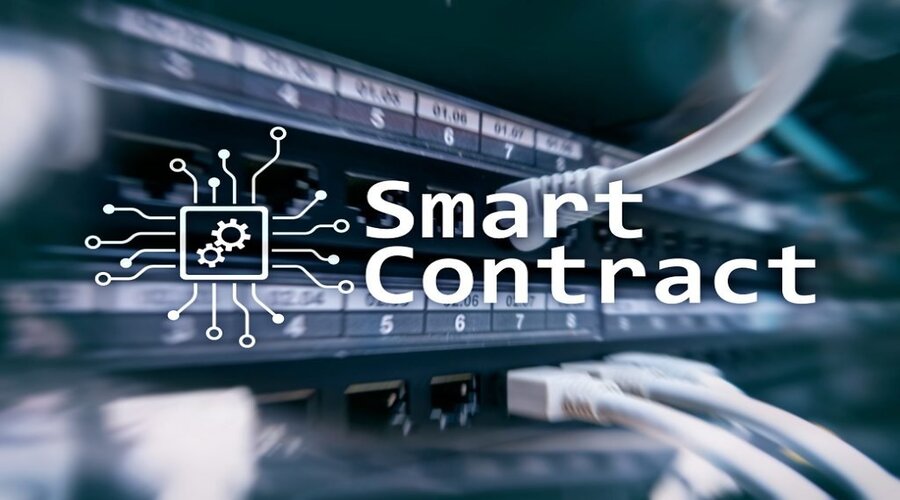Introduction
In today’s digital age, traditional business transactions are undergoing a revolutionary transformation with the emergence of smart contracts. These innovative technological solutions are streamlining processes, reducing costs, and enhancing security across various industries. This article explores the profound impact of smart contracts on traditional business transactions and highlights their benefits, challenges, and future potential.
Understanding Traditional Business Transactions
Before delving into the world of smart contracts, it is crucial to comprehend the nature of traditional business transactions. Traditionally, business agreements were typically conducted through manual processes, involving paper-based contracts, intermediaries, and time-consuming procedures. These transactions often suffered from inefficiencies, delays, and human errors.
The Rise of Smart Contracts

Definition and Features
Smart contracts are self-executing digital contracts that automatically enforce predefined terms and conditions. They are built on blockchain technology, which ensures transparency, immutability, and decentralized execution. Smart contracts rely on code and cryptographic protocols to facilitate, verify, or enforce the performance of a contract.
Key features of smart contracts include:
- Autonomy: Smart contracts operate independently without the need for intermediaries or centralized authorities.
- Trust: The immutability and transparency of blockchain technology inspire trust among participants.
- Accuracy: Smart contracts eliminate human errors by executing predefined actions accurately.
- Speed: Digital automation reduces processing time significantly compared to traditional methods.
- Cost-efficiency: Smart contracts eliminate the need for intermediaries, reducing costs associated with third-party involvement.
Benefits of Smart Contracts
Smart contracts offer a multitude of benefits for businesses and individuals alike. These advantages include:
- Increased Efficiency: With automated processes, smart contracts eliminate the need for manual intervention, reducing time and effort required for transaction execution.
- Enhanced Security: The decentralized nature of blockchain technology ensures data integrity and protection against fraud or tampering.
- Cost Reduction: By eliminating intermediaries and reducing the administrative burden, smart contracts lead to cost savings for businesses.
- Transparency: Smart contracts provide real-time visibility into transactions, enabling stakeholders to track and verify every step of the process.
- Improved Accuracy: Smart contracts execute predefined actions accurately, minimizing the risk of errors and disputes.
Smart Contracts in Different Industries
Smart contracts are transforming various industries, revolutionizing how business transactions are conducted. Let’s explore some prominent sectors where smart contracts are making a significant impact:
Real Estate
In the real estate industry, smart contracts streamline property transactions, including buying, selling, and renting. These contracts facilitate secure and transparent property transfers, reducing the need for intermediaries such as brokers or lawyers. Additionally, they enable automated payment transfers and simplify the complex processes involved in property management.
Supply Chain Management
Smart contracts enhance supply chain efficiency by automating processes and ensuring transparency throughout the supply chain. They enable real-time tracking of goods, automate payment settlements, and provide visibility into the origin and authenticity of products. Smart contracts minimize fraud, counterfeit products, and delays in the supply chain. By automating key steps such as inventory management, order fulfillment, and payment processing, businesses can achieve greater operational efficiency and reduce costs. The transparency provided by smart contracts also enhances trust among supply chain participants, leading to stronger collaborations and improved overall performance.
Insurance
The insurance industry is another sector experiencing the transformative power of smart contracts. These contracts streamline the claims process, automating verification, validation, and payout procedures. By eliminating the need for manual intervention, smart contracts expedite claims settlement, ensuring faster and more accurate compensation for policyholders. The transparency and immutability of smart contracts also help prevent fraudulent claims, reducing costs for insurance providers.
Healthcare
In the healthcare sector, smart contracts are revolutionizing patient data management, medical record sharing, and clinical trials. Smart contracts ensure the privacy, security, and interoperability of health data while enabling seamless and secure sharing among healthcare providers. They also facilitate automated payments and reimbursements, improving efficiency and reducing administrative burdens. By leveraging smart contracts, healthcare organizations can enhance patient care, reduce costs, and foster innovation in medical research.
Advantages of Smart Contracts over Traditional Business Transactions
Smart contracts offer several distinct advantages over traditional business transactions:
- Efficiency and Automation: Smart contracts automate processes, eliminating the need for manual intervention and reducing processing time. Transactions are executed swiftly and accurately, enhancing overall efficiency.
- Cost Reduction: By eliminating intermediaries and streamlining processes, smart contracts significantly reduce transaction costs. This cost-effectiveness is particularly beneficial for businesses operating on tight budgets.
- Transparency and Security: The decentralized nature of smart contracts ensures transparency, making it easier to track and verify transactions. The immutability of blockchain technology enhances security, protecting against fraud and tampering.
- Streamlined Dispute Resolution: Smart contracts include predefined conditions and actions, minimizing the potential for disputes. When disagreements do arise, the self-executing nature of smart contracts provides an efficient and transparent mechanism for resolving conflicts.
- Greater Trust: The transparency and integrity of smart contracts inspire trust among participants, fostering stronger business relationships and reducing the need for trust-building intermediaries.
- Enhanced Trust and Security: Smart contracts operate on a decentralized blockchain, where transactions are recorded and verified by multiple participants. This distributed consensus mechanism increases trust and reduces the risk of fraud or manipulation compared to centralized systems.
- Immutable and Auditable Transactions: Once a smart contract is deployed on the blockchain, its code and transaction history are immutable. This means that transactions cannot be altered or tampered with, providing a transparent and auditable record of all interactions.
- Reduced Administrative Burden: Smart contracts automate many administrative tasks, such as document verification, record-keeping, and payment processing. This reduces the need for manual intervention, freeing up time and resources for more strategic activities.
- Streamlined Supply Chain Management: Smart contracts can revolutionize supply chain management by automating processes such as inventory tracking, order fulfillment, and payment settlements. This enhances efficiency, reduces delays, and improves transparency throughout the supply chain.
- Improved Dispute Resolution: Smart contracts can include predefined dispute resolution mechanisms, such as arbitration or mediation clauses. This reduces the need for costly and time-consuming legal proceedings, providing a more efficient and cost-effective way to resolve conflicts.
Challenges and Limitations of Smart Contracts
While smart contracts offer numerous advantages, they also face certain challenges and limitations:
- Legal Considerations: The legal framework surrounding smart contracts is still evolving. Issues such as jurisdiction, enforceability, and liability need to be addressed to ensure their widespread adoption.
- Technical Complexities: Developing and implementing smart contracts require technical expertise and robust infrastructure. Complex programming languages, security vulnerabilities, and scalability concerns pose challenges that need to be overcome.
- Human Error and Code Bugs: Despite their automation, smart contracts are still susceptible to human errors during the coding process. Bugs in the code can lead to unexpected outcomes or vulnerabilities, emphasizing the importance of rigorous testing and auditing.
- Limited Flexibility: Smart contracts are based on predefined conditions and actions. While this reduces the risk of disputes, it can limit flexibility in certain scenarios that require negotiation or subjective judgments.
Adoption and Future Potential of Smart Contracts
The adoption of smart contracts is steadily increasing across industries. Organizations are recognizing the potential of this technology to streamline operations, reduce costs, and enhance security. As blockchain technology matures and becomes more accessible, we can expect a broader adoption of smart contracts.
In the future, smart contracts have the potential to transform not only traditional business transactions but also governance systems, intellectual property rights, and financial markets. Their ability to automate complex processes, increase transparency, and reduce costs makes them an attractive solution for various sectors. As businesses and governments continue
to explore the capabilities of smart contracts, we can anticipate several key developments:
- Interoperability: Efforts are underway to enhance the interoperability of different blockchain platforms, allowing smart contracts to seamlessly interact across networks. This would unlock new possibilities for cross-industry collaborations and expand the potential applications of smart contracts.
- Integration with Internet of Things (IoT): Smart contracts can be integrated with IoT devices, enabling automated and secure interactions between physical objects and digital contracts. This integration opens avenues for innovative applications in areas such as supply chain management, logistics, and smart cities.
- Smart Legal Contracts: The convergence of smart contracts and legal frameworks is gaining attention. Smart legal contracts would incorporate legal clauses and conditions, ensuring compliance with existing laws and regulations. This development could accelerate the adoption of smart contracts in traditional legal systems.
- Standardization: Efforts to establish industry-wide standards for smart contracts are essential for widespread adoption. Standardization would address interoperability issues, promote best practices, and provide a solid foundation for building trust and confidence in smart contract solutions.
- Blockchain Scalability: Scalability remains a challenge for blockchain networks. The development of scalable solutions, such as layer-two protocols and advancements in consensus mechanisms, will be crucial for the widespread adoption of smart contracts on a global scale.
Conclusion
In conclusion, smart contracts are revolutionizing traditional business transactions by automating processes, increasing efficiency, reducing costs, and enhancing security. They offer numerous benefits across industries, including real estate, supply chain management, insurance, and healthcare. However, challenges such as legal considerations and technical complexities need to be addressed for broader adoption. As smart contract technology continues to evolve, we can expect it to reshape not only business transactions but also governance, intellectual property, and financial markets.
I’m a best-selling author and leading authority in the world of cryptocurrency. I have been involved in the crypto community since 2012 and have helped numerous startups and organizations on blockchain strategy. I am a regular contributor to Forbes and CoinDesk, and my work has been featured in The Wall Street Journal, Bloomberg, Reuters, and other major media outlets. In addition to writing for publications, I am also a sought-after speaker on cryptocurrency and blockchain technology niches respectively.



